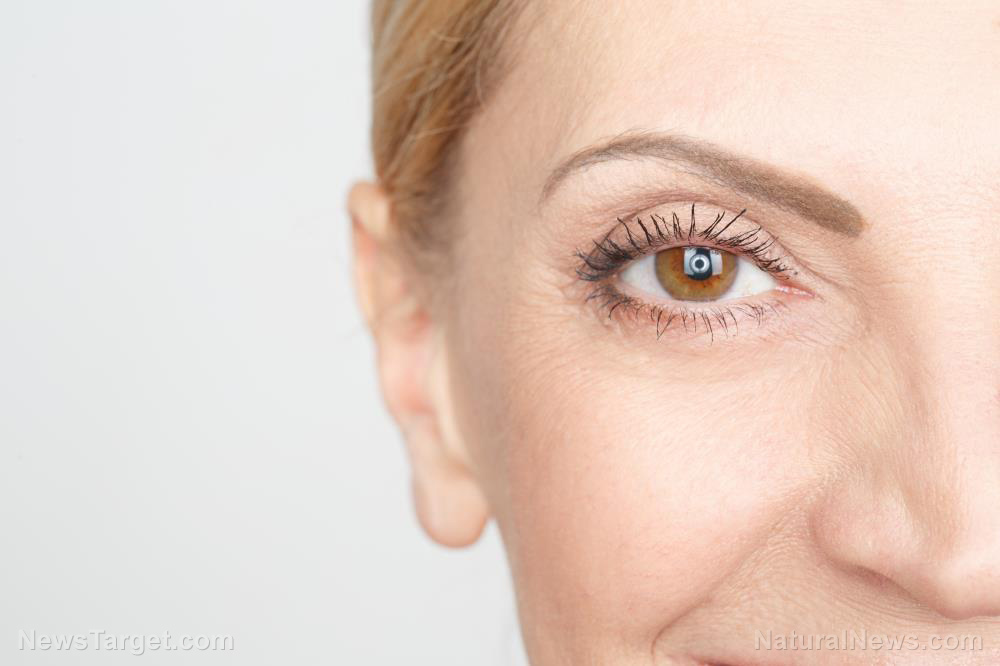
Advertisement
Your eyes work tirelessly every day. But if you work long hours typing away in front of a computer or routinely checking social media on your cellphone, you may be putting a lot of strain on your eyes.
In fact, natural health experts warn that frequent and prolonged exposure to blue light from computer screens and gadgets can damage the retina, the part of your eye that receives light and sends signals to your brain. This can cause vision problems like age-related macular degeneration (AMD).
According to research, the average American spends around nine hours a day looking at digital media. That’s nine hours of exposure to blue light! It’s no wonder experts expected AMD to affect 2.95 million Americans in 2020. By 2025, they expect this number to triple.
But the good news is, blue light has a nemesis: carotenoids. Present in orange foods, carotenoids are pigments that act as antioxidants. In particular, two carotenoids called lutein and zeaxanthin are hailed for their protective effects against oxidative stress and inflammation that could lead to vision problems.
The dangers of blue light
In this digital era, it’s safe to say that many of us spend a lot of time staring at digital screens. Unfortunately, that’s bad for our eyes. Research has shown that blue light emitted by computer screens, laptops, LED televisions, tablets and smartphones damages the delicate cells of the retina.
Eye strain due to blue light exposure can lead to several adverse effects, including headaches or migraines, eye pain and blurry vision. If you experience one or more of these symptoms, consider cutting back on your phone or computer usage.
Moreover, prolonged exposure to blue light interferes with your body’s natural sleep-wake cycle. This means if you use your phone before bed, the blue light emitted by the screen will make it harder for you to fall asleep.
Research shows blue light does that because it inhibits your body’s production of melatonin, the hormone that controls your sleep-wake cycle. In the long run, this could lead to sleep problems like insomnia.
Recently, scientists have also found that melatonin can prevent oxidative stress and control your body’s innate immune response. So it’s not just your vision or sleep quality that suffers from blue light exposure. Your immune system takes a hit, too. And if it’s not in good shape, you may be at risk of diseases.
Maintaining good eyesight
Apart from reducing your phone or computer usage, another way you can care for your eyes is by adding more carotenoid-rich foods to your diet. Carotenoids work like “internal sunglasses,” preventing blue light from reaching your retina. Additionally, carotenoids also protect your eyes from too much sun exposure.
Below are some of the best sources of carotenoids. Consider incorporating them into your diet by adding them to your go-to recipes. Some, like carrots, can even be eaten raw as snacks.
- Kale – Kale contains lutein and beta-carotene, a carotenoid your body converts into vitamin A. Kale has vitamin C as well, which has been shown to lower the risk of developing cataracts.
- Winter squash – Winter squash is an excellent source of lutein and vitamin A.
- Collards – Aside from lutein, beta-carotene and vitamin A, collards are naturally rich in magnesium. A 2014 study on glaucoma suggested that magnesium deficiency may be linked to several eye disorders.
- Swiss chard – Swiss chard is a leafy green vegetable packed with lutein and vitamins A and C.
- Rocket – Rocket, also known as arugula, is a peppery Mediterranean vegetable rich in lutein.
- Brussels sprouts – These mildly bitter sprouts are a good source of lutein and zeaxanthin.
- Pumpkin – Pumpkin’s bright orange peel and flesh are super high in lutein. Pumpkin is also incredibly rich in potassium, which is great for dry eyes.
- Egg yolks – Lutein gives egg yolks their vibrant yellow color.
- Sweet potatoes – These sweet, starchy spuds offer high amounts of lutein, beta-carotene and vitamins A and C.
- Carrots – Crunchy carrots can help you see better thanks to lutein, beta-carotene and vitamin A.
Frequent and prolonged exposure to blue light emitted by digital screens can harm your eyes and cause vision problems. Luckily, you can easily protect your eyes from damage by eating more carotenoid-rich foods as part of a balanced diet.
Sources:
Advertisements







